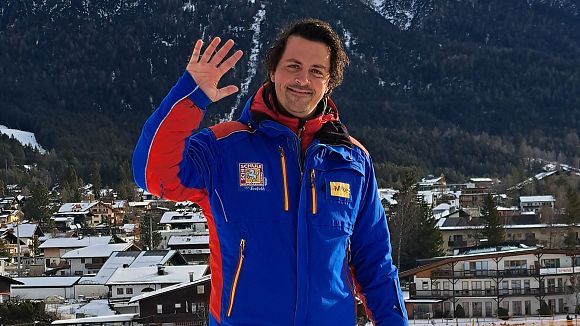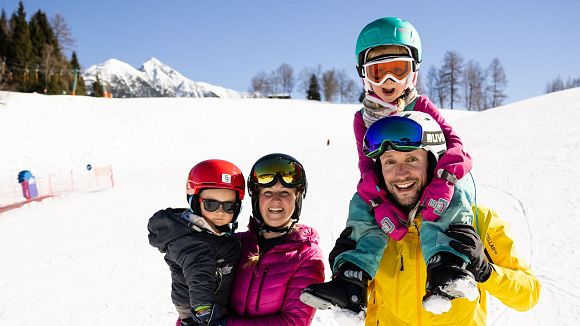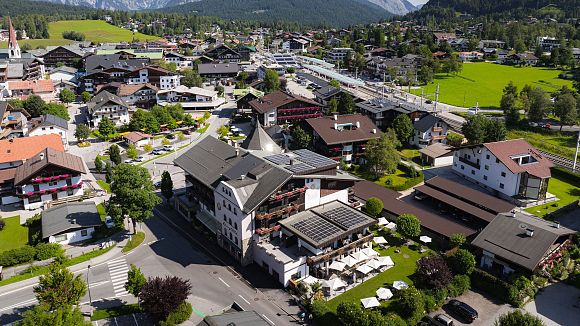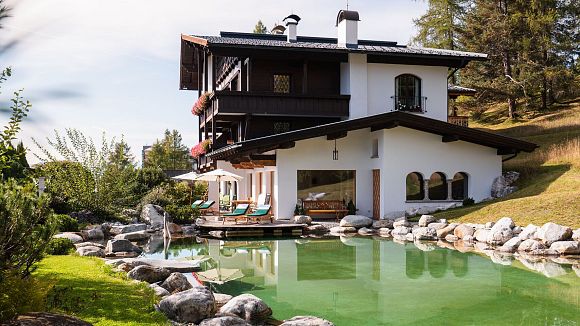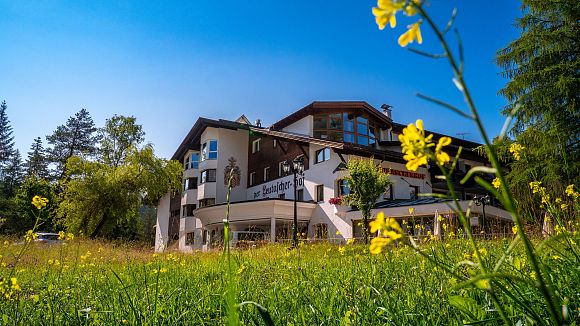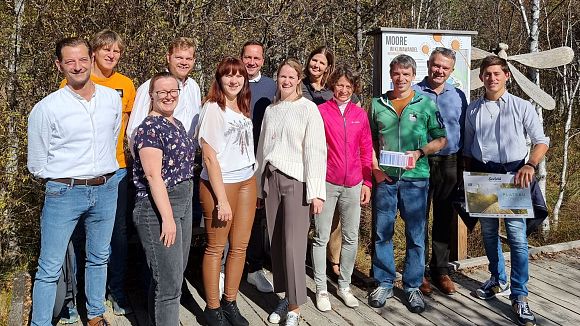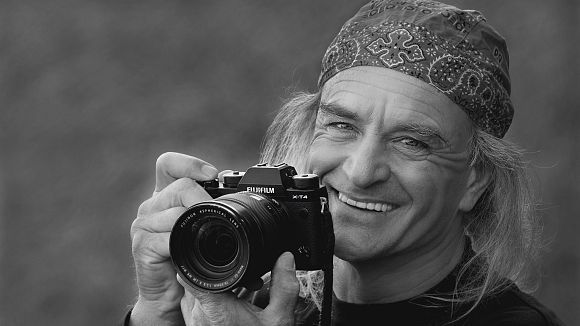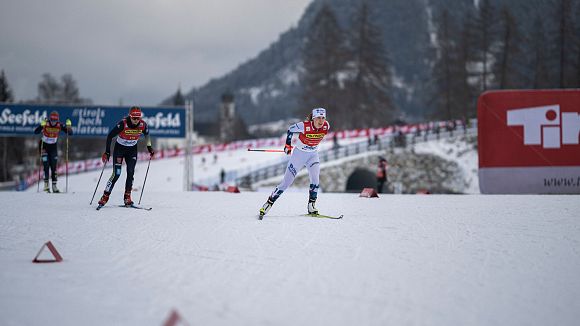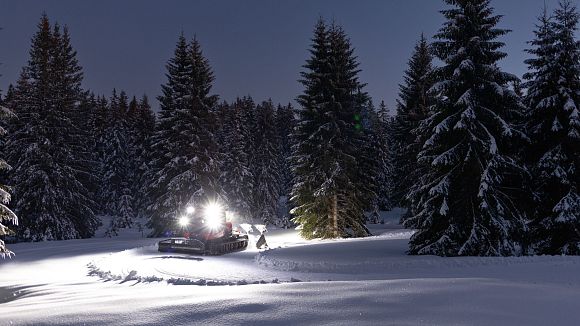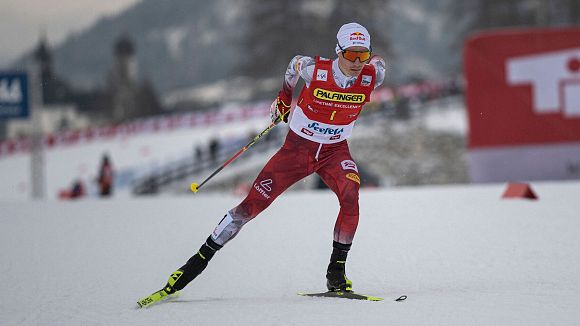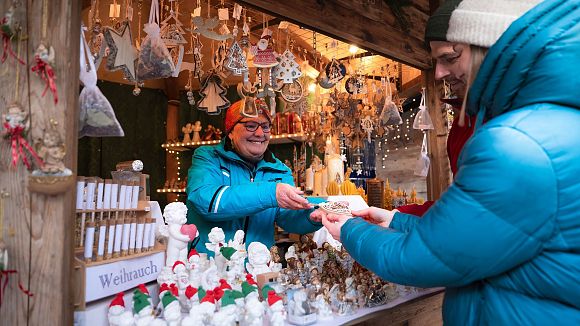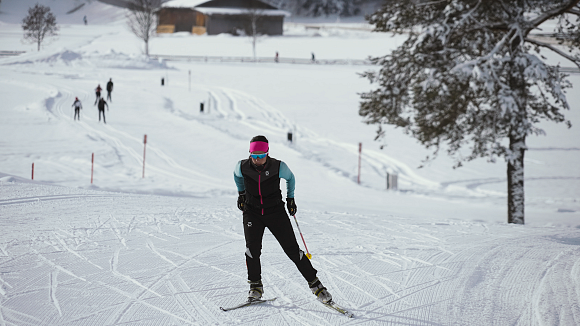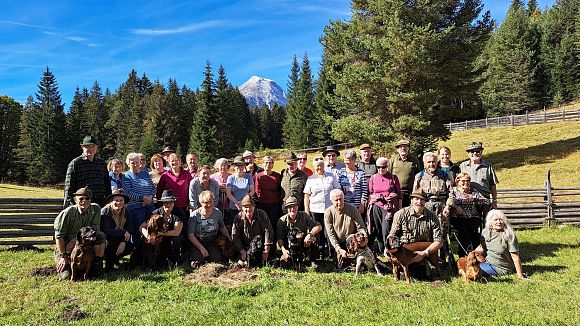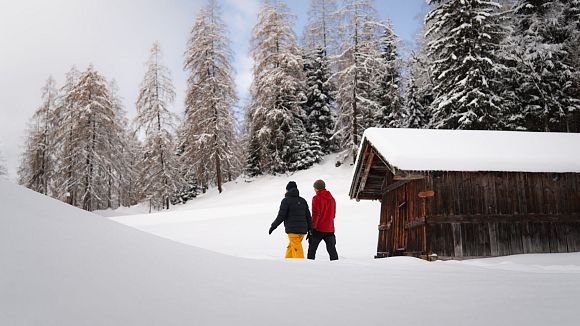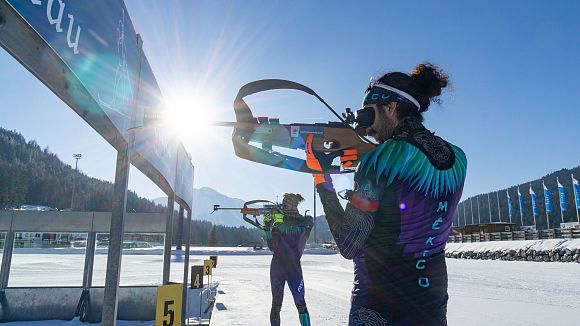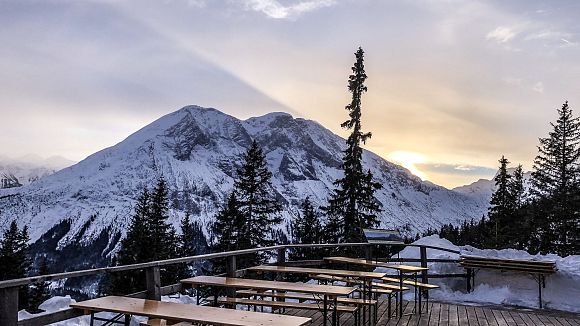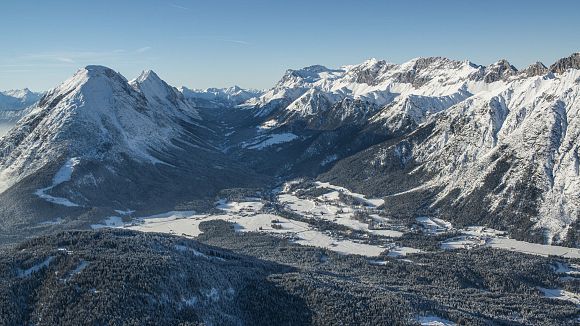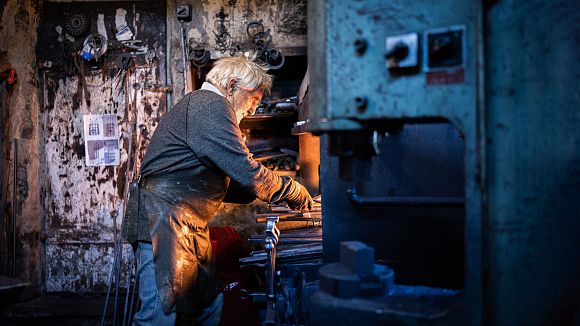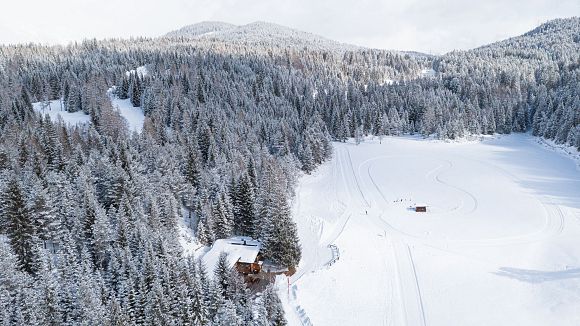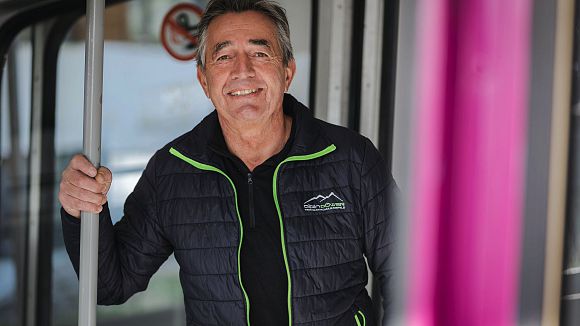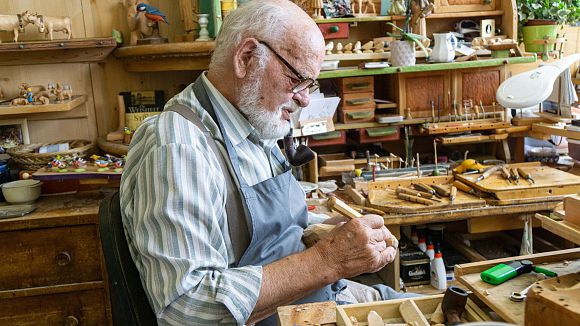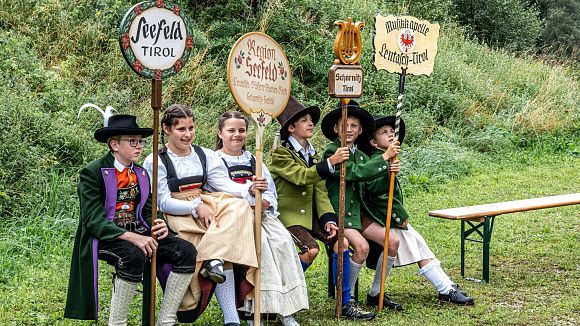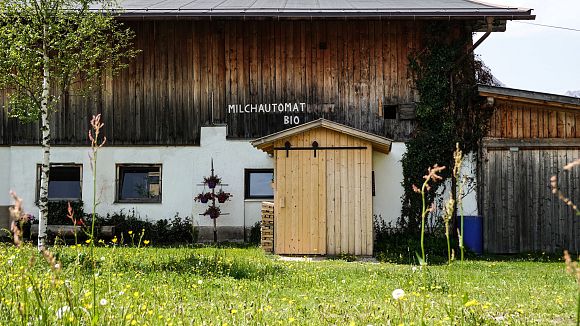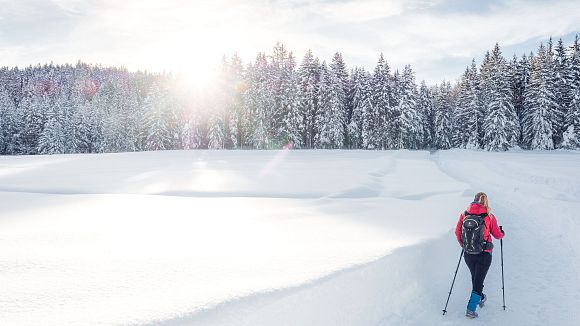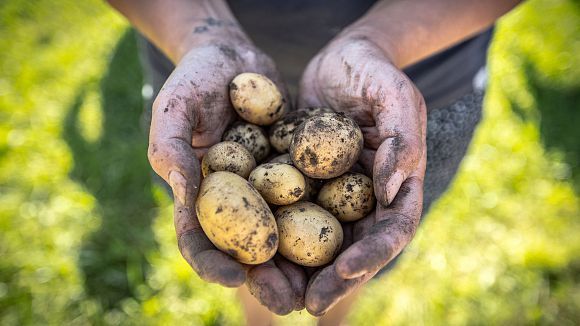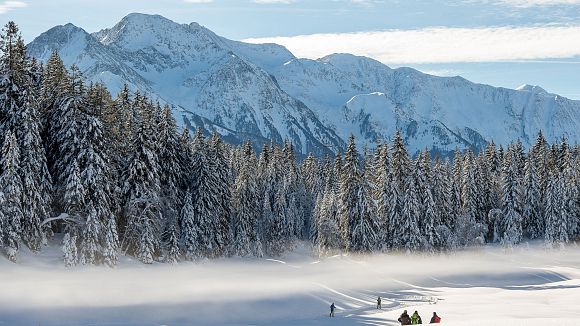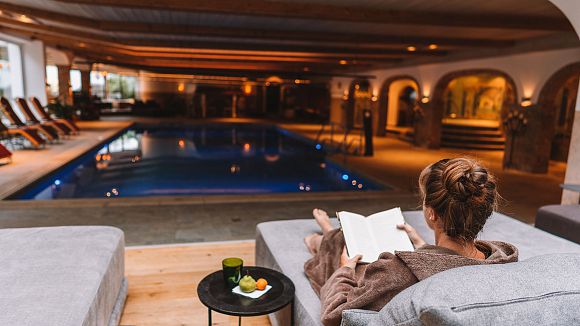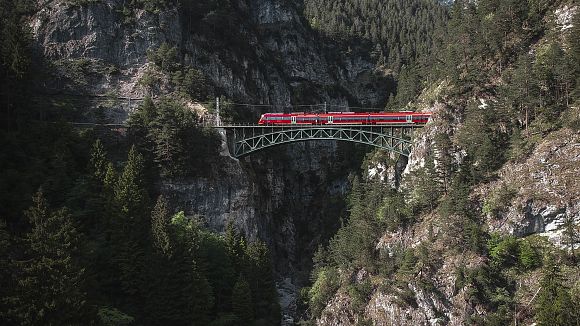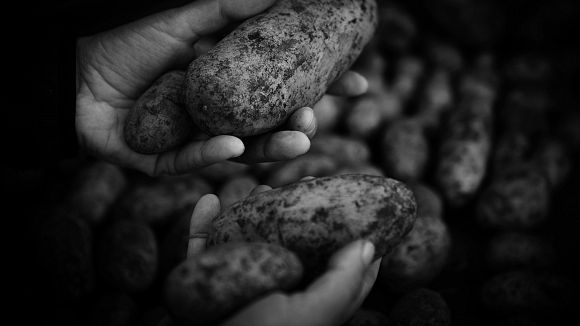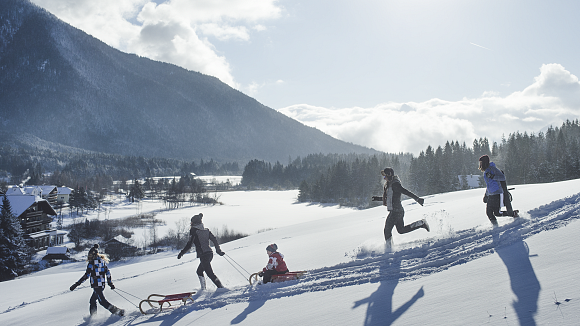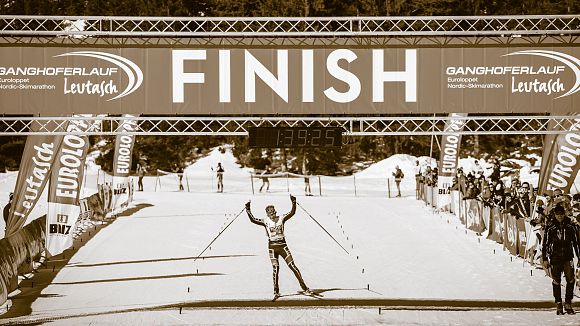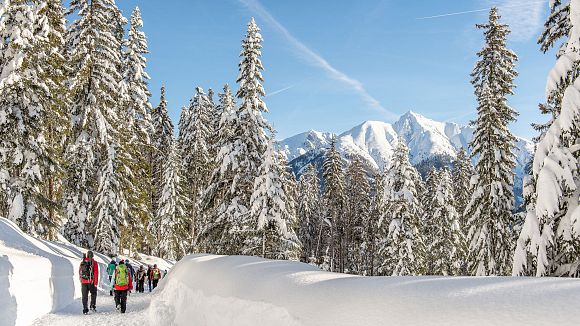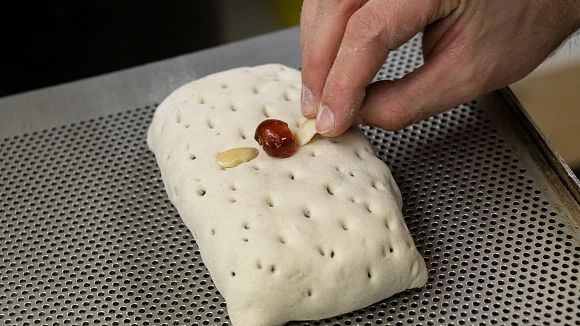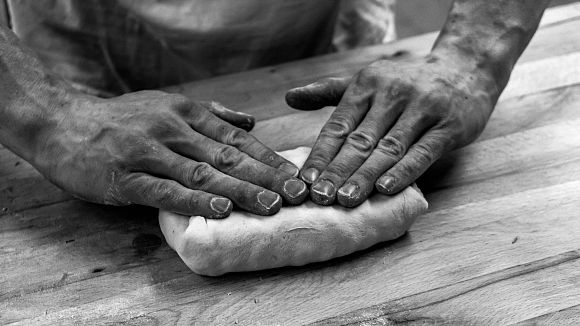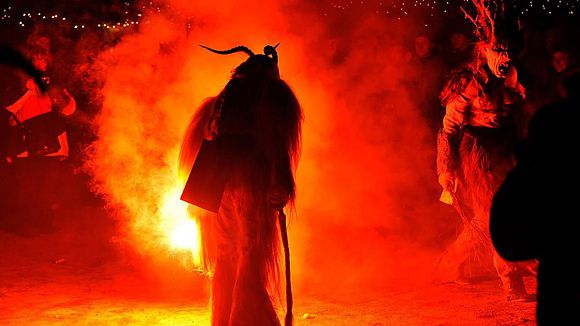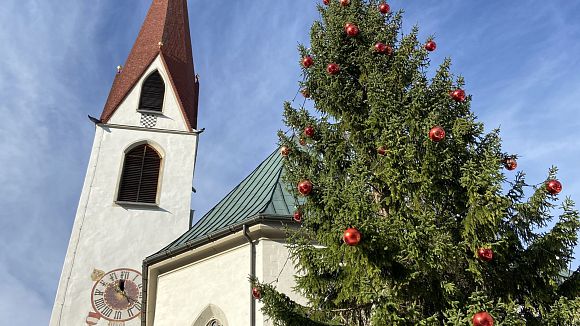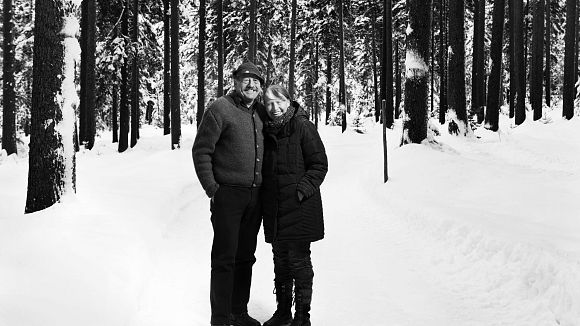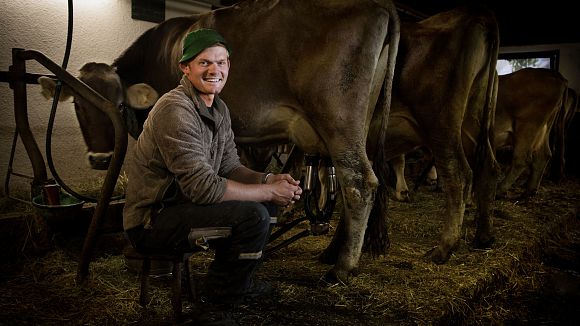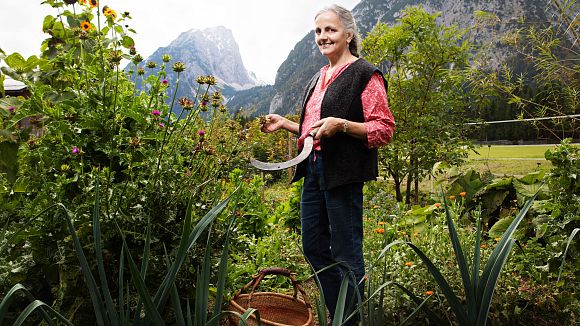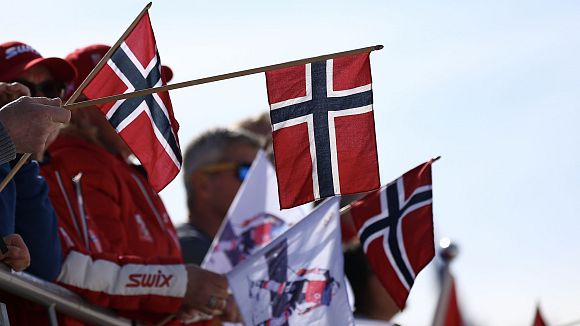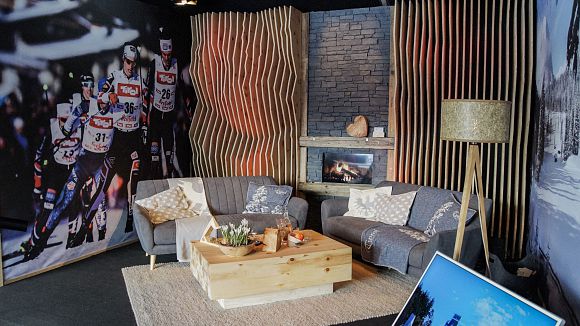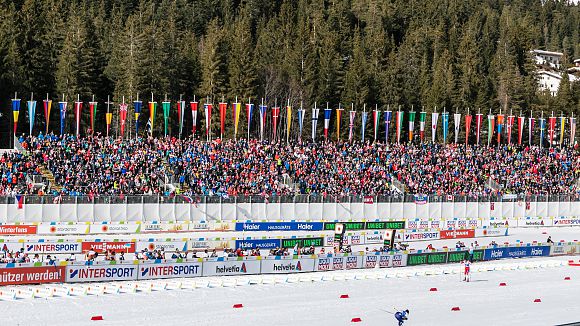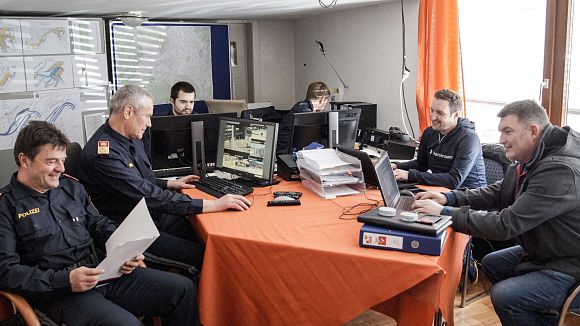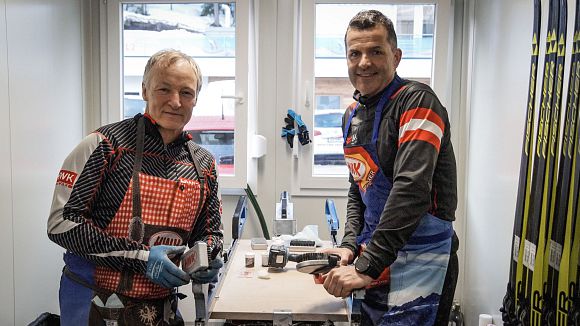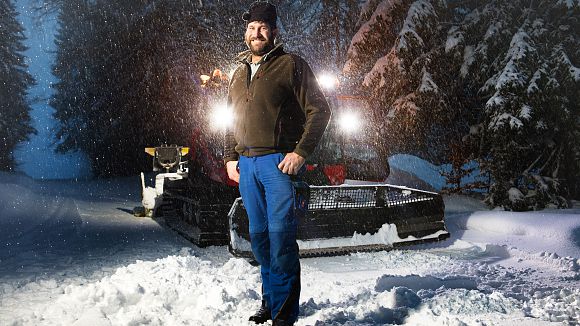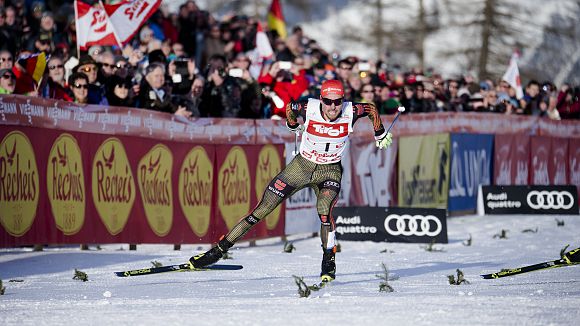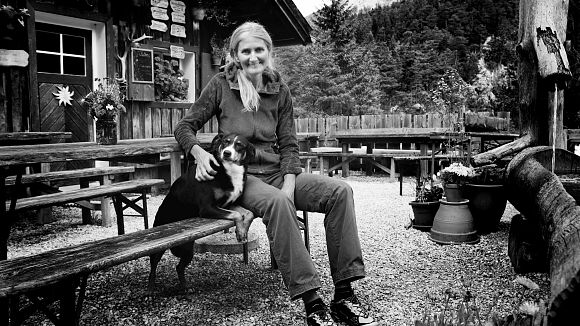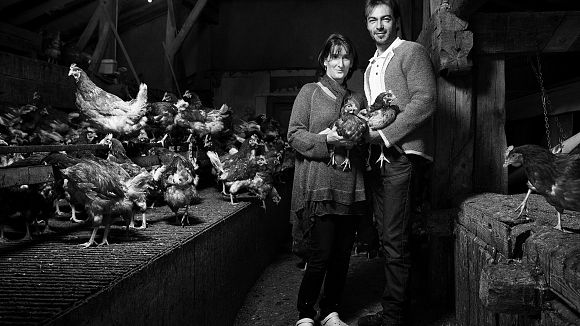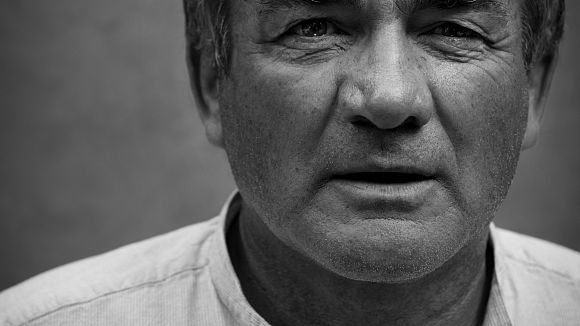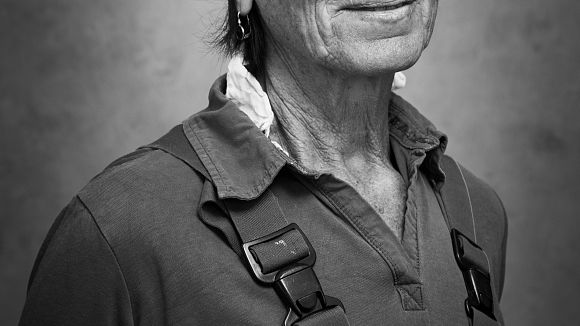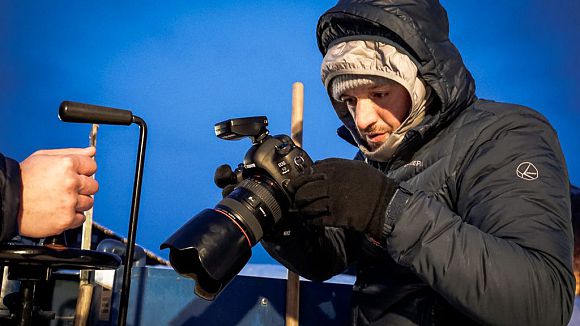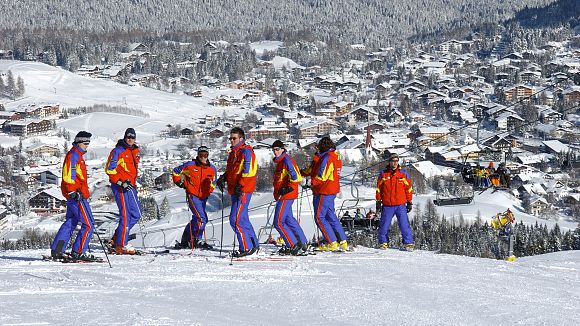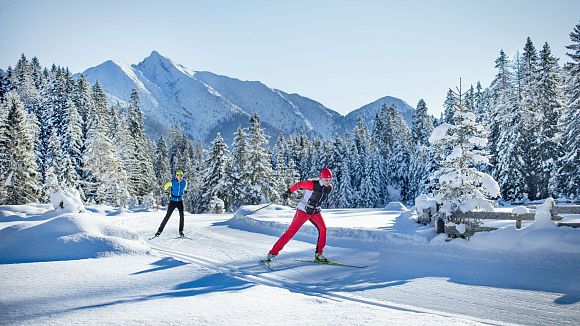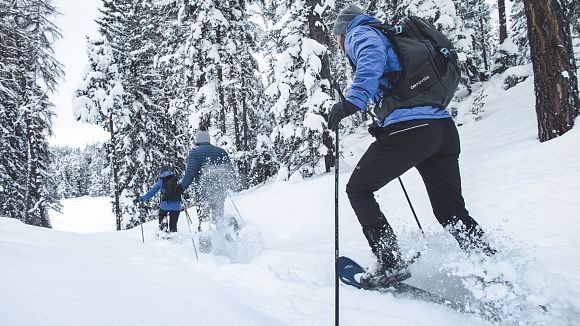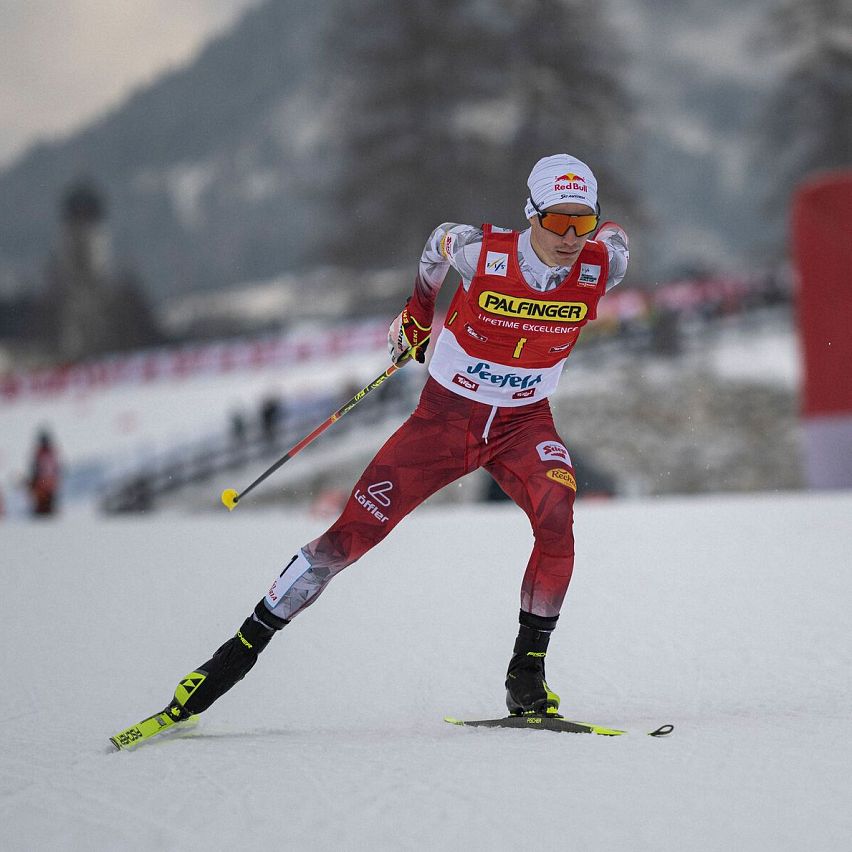
von Nicolas Lair
January 08, 2024
Nordic Combined Triple 2024
The triple champion in the role of the hunter
Just under a year ago, a 21-year-old Tyrolean shook up the entire Nordic Combined World. Johannes Lamparter sensationally won the 10th edition of the Nordic Combined Triple in Seefeld, thus fulfilling one of his biggest dreams. In 2024, he wants to repeat this success and at the same time chase his biggest rival from the top of the overall standings. In a personal interview, the man from Hall in Tyrol told me how he intends to do this and how he manages three days of World Cup competition in a row.
A running start to Seefeld
The Nordic combined season has been running since the end of November and the Austrians can be very satisfied. Five athletes are in the top 20 in the men's event. (Almost) at the top is Johannes Lamparter, who gives me a satisfied impression during our interview: "I've had a good start to the season and we've done a really good job on the hill. We had a few problems with the equipment at the first two stages, but we quickly got to grips with that." Especially when he talks about the last race, he grins: "The last two home victories in Ramsau were of course cool, I can't think of anything better. I saw that when everything comes together, I can compete with (Jarl Magnus) Riiber." The man from Hall sees the triple winner from 2020 and 2021 as the competitor to beat this year: "I think he's still setting the tone at the moment, but he's beatable, we've seen that. All in all, I'm super happy with how the season is going so far."
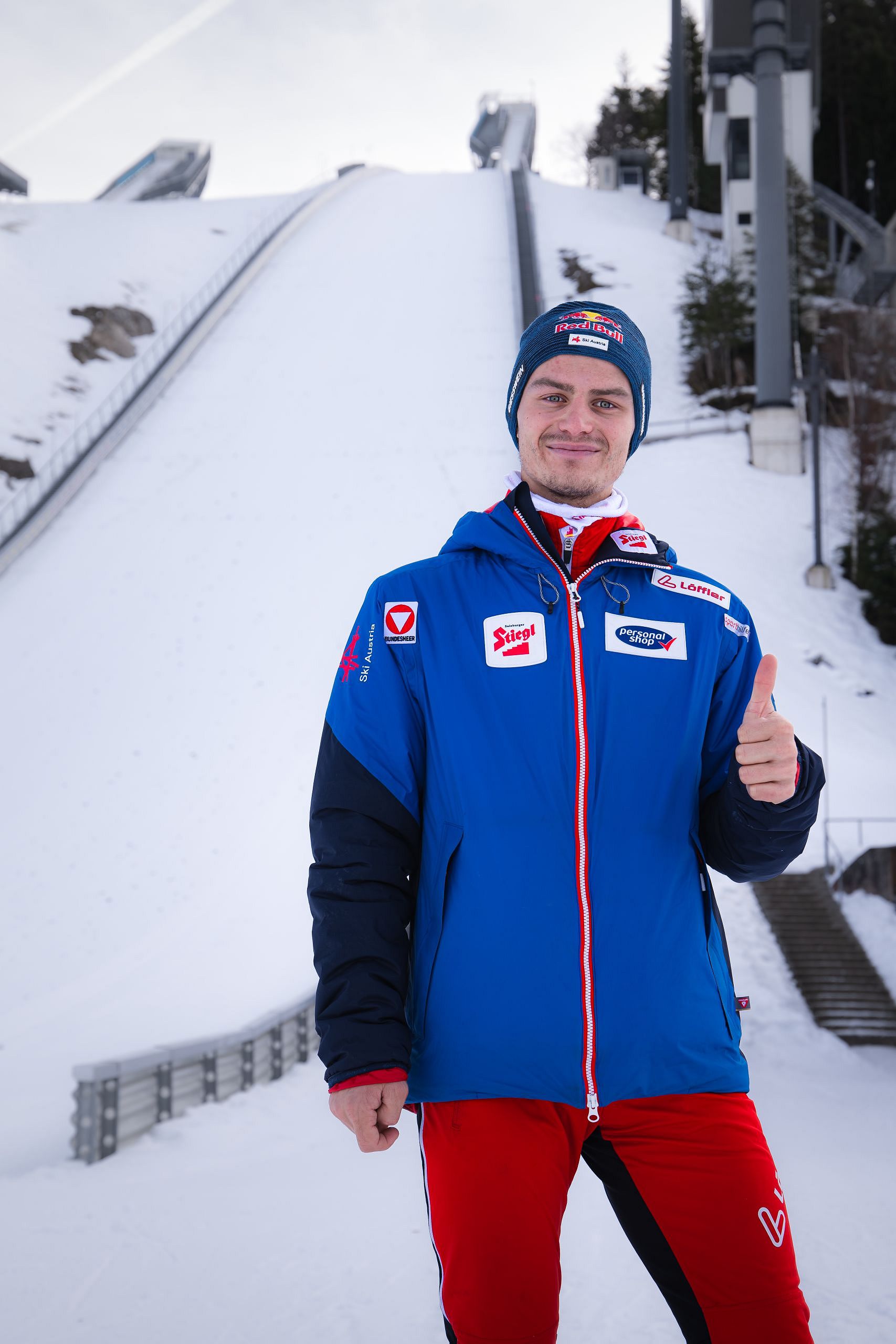
Johannes Lamparter in front of the Toni Seelos ski jump in Seefeld
In the weeks leading up to the triple, the reigning overall World Cup winner can often be seen training in the Seefeld region
Not yet the measure of all things?
With the triple trophy in 2023 and victory in the overall World Cup last year, I asked him whether he doesn't yet see himself as the measure of all things in his sport. I received a clear answer: "No, certainly not yet. You can see from the World Cup standings, that he (Jarl Magnus Riiber) is leading and I'm second. I know it's still like that: when he does his things and starts to perfect them, then he's really hard to beat. But he can be beaten! Everything has to come together for me to do that. That has already worked on one or two occasions, but there are still reserves on my side. We will now try to utilise them."
"That wasn't easy at all. I stood there in the morning on Sunday and knew: I absolutely want to win this."
Home game under great pressure
When we started talking about the previous season, I naturally wanted to know what it was like for Johannes Lamparter, who was only 21 years old at the time, to lift the triple trophy in front of his home fans. "I have to say: it wasn't easy at all. I stood there in the morning on Sunday and knew that I absolutely wanted to win it. I knew I was in really good shape, but at the same time I was totally in tunnel vision, trying to block out everything around me and concentrate on the race. I also tried to turn everything around me into positive energy, but I felt an insane amount of pressure that I had to perform now. After all, there was family, friends and the idea of winning the triple at home." But apparently the external influences couldn't affect him: "Performing under this pressure on Sunday was certainly one of my best competitions ever - I won't forget it in a hurry. Standing up there, hearing the anthem and seeing so many people I know in front of me was something very special."
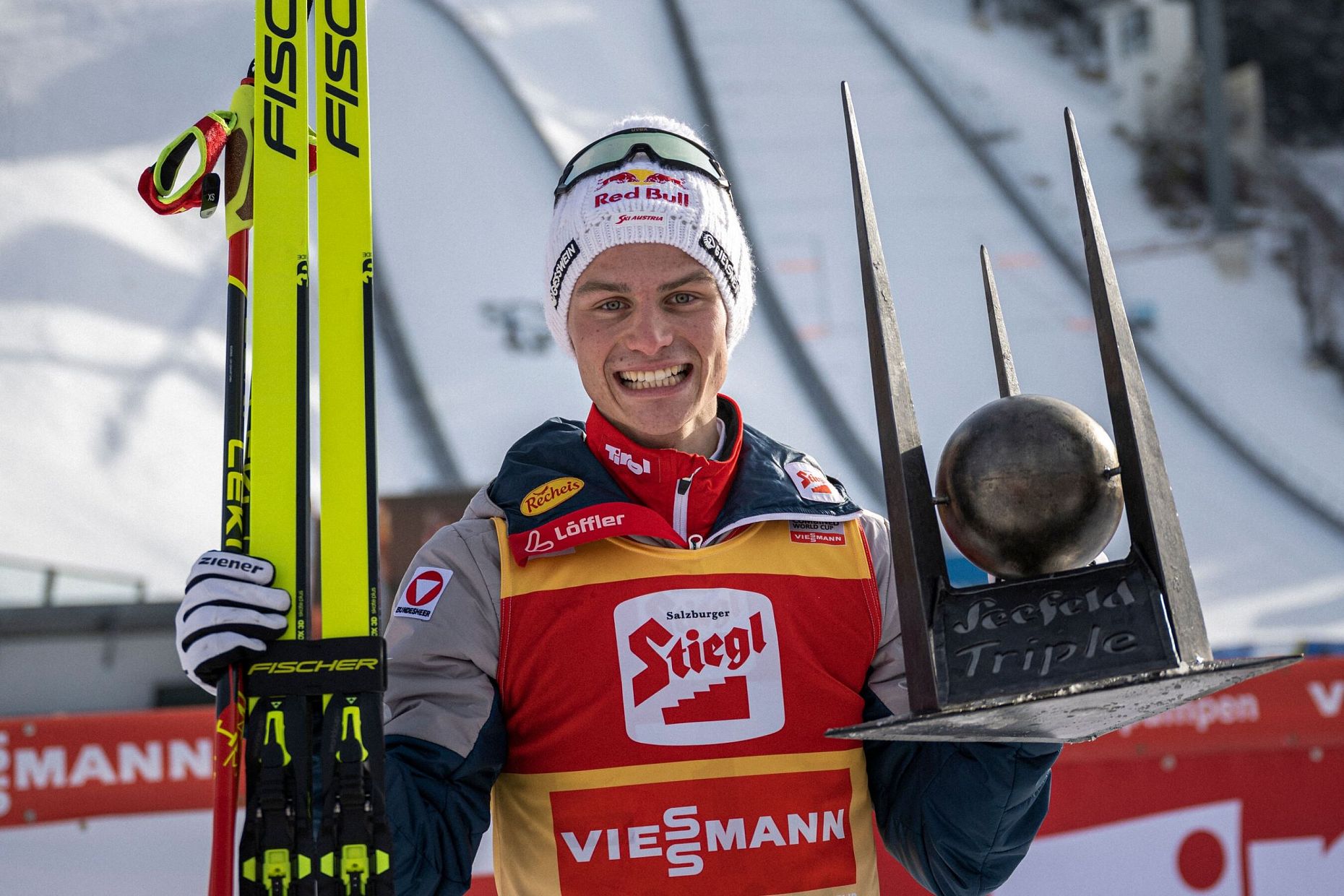
Something to be proud of
Almost a year ago, Lamparter won the Triple Cup in Seefeld
A season with some lows and very high highs
At the end of the season, the young Tyrolean not only had the triple, but also the overall World Cup in his pocket. Because I couldn't even imagine this feeling, I had to ask about his emotions at that moment: "It's different to winning the triple, for example. When you win the World Cup, the feelings somehow don't come in one day. Feelings from the whole season come together and it takes a bit longer to process. I remembered the bad start to the season, an insanely good January and February and a World Cup that was so-so. It's just a different feeling to the triple in Seefeld, for example. Everything has to come together on day X there. On the day you win the overall World Cup, you can simply say you were the best over the whole season, that's something even more special and the greatest thing you can win in my sport, I think." After this answer, I had to probe again and ask about the exact moment when he was presented with the crystal globe: "The moment you get the globe in your hand, it's of course a relief and a feeling like a thousand chains are flying off, because you're under full pressure and full power right up to the last competition. When all that is gone, that's great."
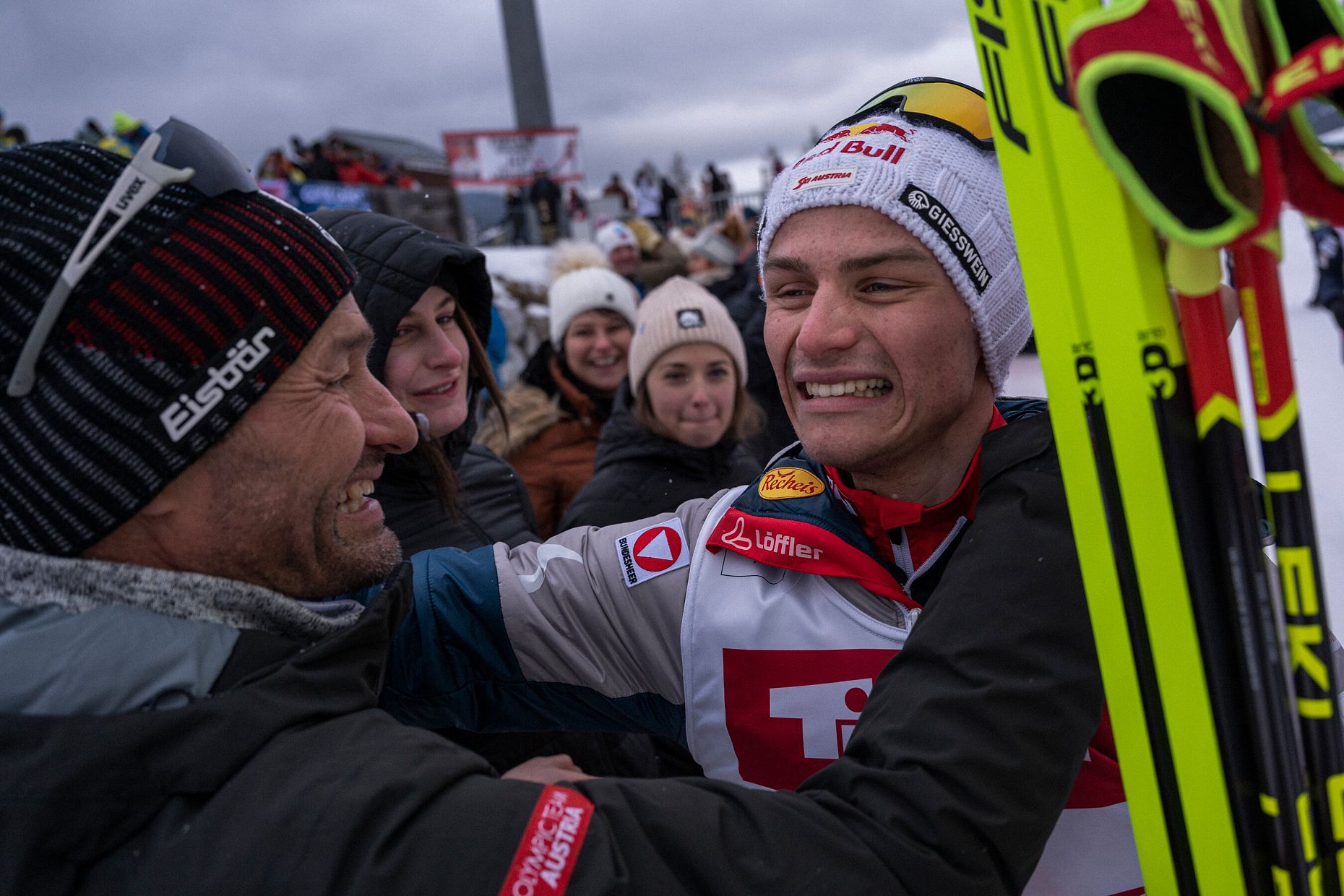
With great success comes great emotion
Lamparter finds many familiar faces in the audience, especially in the home competitions
Stretching the limits
After a brief excursion into the past, I wanted to know from the defending champion what it takes to repeat such a success: "You have to be right at the front in the jumping competition. On the trail, you have to be ready for anything. Bringing a lead over the finishline or forcing a decision in the final climb, both are possible. The basic requirement for me is that I'm at the front in the jumping. My cross-country form makes me feel positive and then I need the right day to be ready to go beyond my limits."
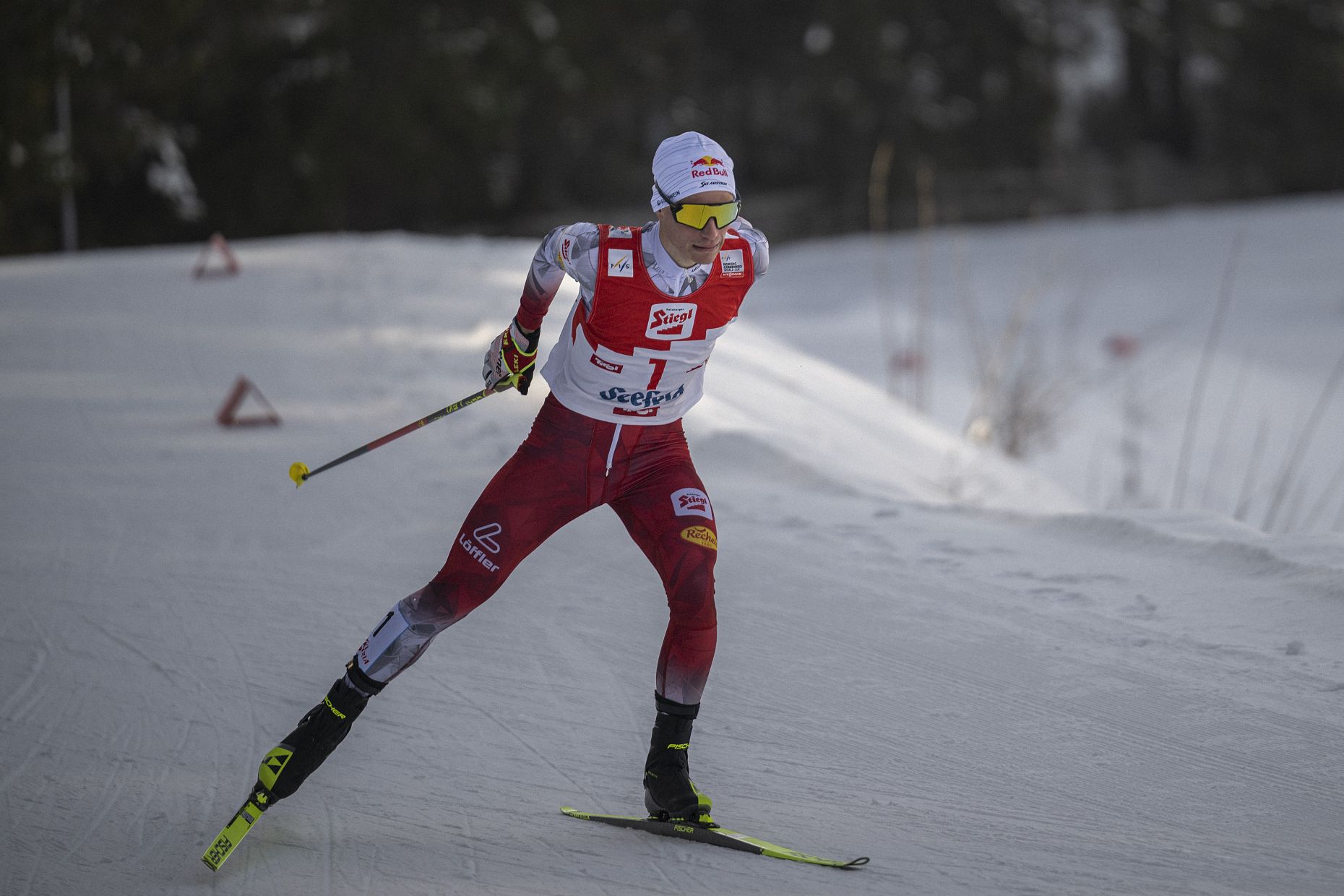
The cross-country form is right
Johannes Lamparter is able to impress on the cross-country ski trail this year
A week in the life of a world-class combined athlete
Because we met during a training session in Seefeld, I would like to know from Johannes what a typical week in the season looks like for him: "You usually come home from the World Cup on Monday or use it as a rest day to relax and regenerate. Then you continue with strength training, cross-country skiing sessions and sometimes ski jumping. The World Cup journey starts again on Thursday. Friday is training, training, training and Saturday and Sunday are competitions. Then it's back home on Monday for the rest day. That's actually always such a cycle. If there is a break, of course, then you have more time to train but also to recover - you always have to make sure that the balance is right. There's not much free time left over during this time."
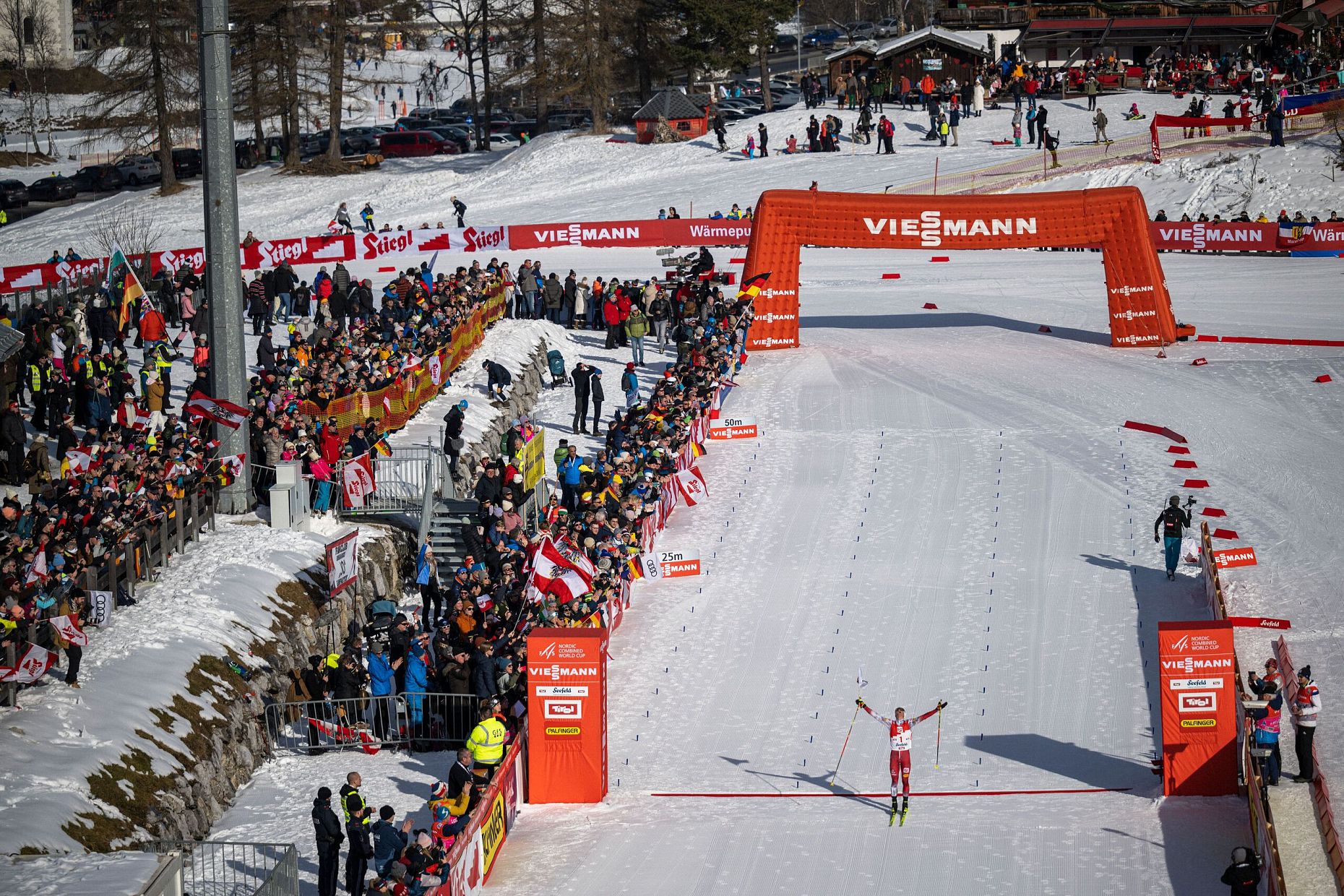
The journey continues as soon as you reach your destination
The Nordic combined athletes have a tight schedule during the World Cup season
A sport for mentality monsters?
When I watch the combined athletes on TV, I always see very tense and focussed faces. So I would like to know how my interviewer assesses the mental part of his sports: "I would describe the mental part as very important. When you jump, everything has to fit together in a tenth of a second and the mental part makes a big difference. I actually believe that the mental role is greater in ski jumping. But of course you also have to be ready in your head when cross-country skiing in order to be able to push yourself. And then you can do it. In life in general and in sport anyway, a lot happens in your head." When asked how many per cent he would give to the mental part, I received a surprising answer: "I would say that in these two sports, especially among the very best athletes, it is very often the head that decides who wins. I would certainly give 20 to 30 per cent to the mental component."
"I would say that in these two sports, especially among the very best athletes, it is very often the head that decides who wins."
Attack on the power reserves
To close the circle, I ask Johannes how he is preparing for Seefeld 2024: "The most important thing is to be fit and healthy so that you can put all your energy into this weekend. It's not really the preparations that matter, but rather how you go from Friday to Saturday and from Saturday to Sunday. Two competitions are normal for us, we can actually manage that, but with the three in Seefeld it's particularly important to organise your energy well over the whole weekend. You still have to be able to give 100 per cent on Sunday. Sure, it's the same for everyone, but the triple is more energy-sapping than a "normal" weekend."
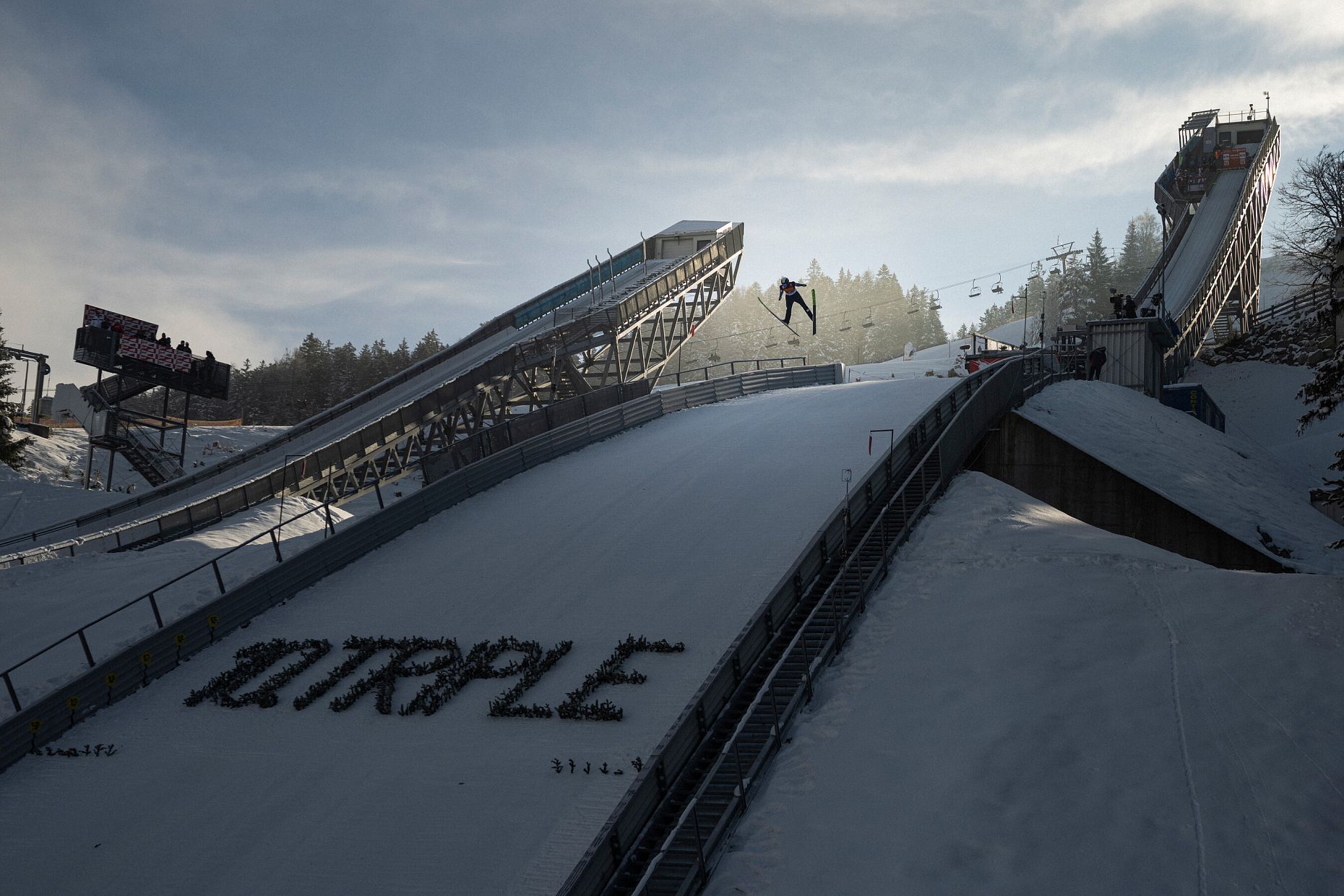
After jumping is before jumping
The Triple in Seefeld is three days of action - in the end, the winner is the one who can still give 100% on day three.
Everything for joint success
At the end of our conversation, I ask the reigning triple champion for a message to the fans: "I can only recommend the triple in Seefeld to everyone. The goosebump moments I was able to experience last year, with so many people and also while watching - it's just exciting to experience the whole thing. We're in a really good shape as a whole team this year and I feel absolutely ready myself. We can use all the cheers we can get to finish together at the top."
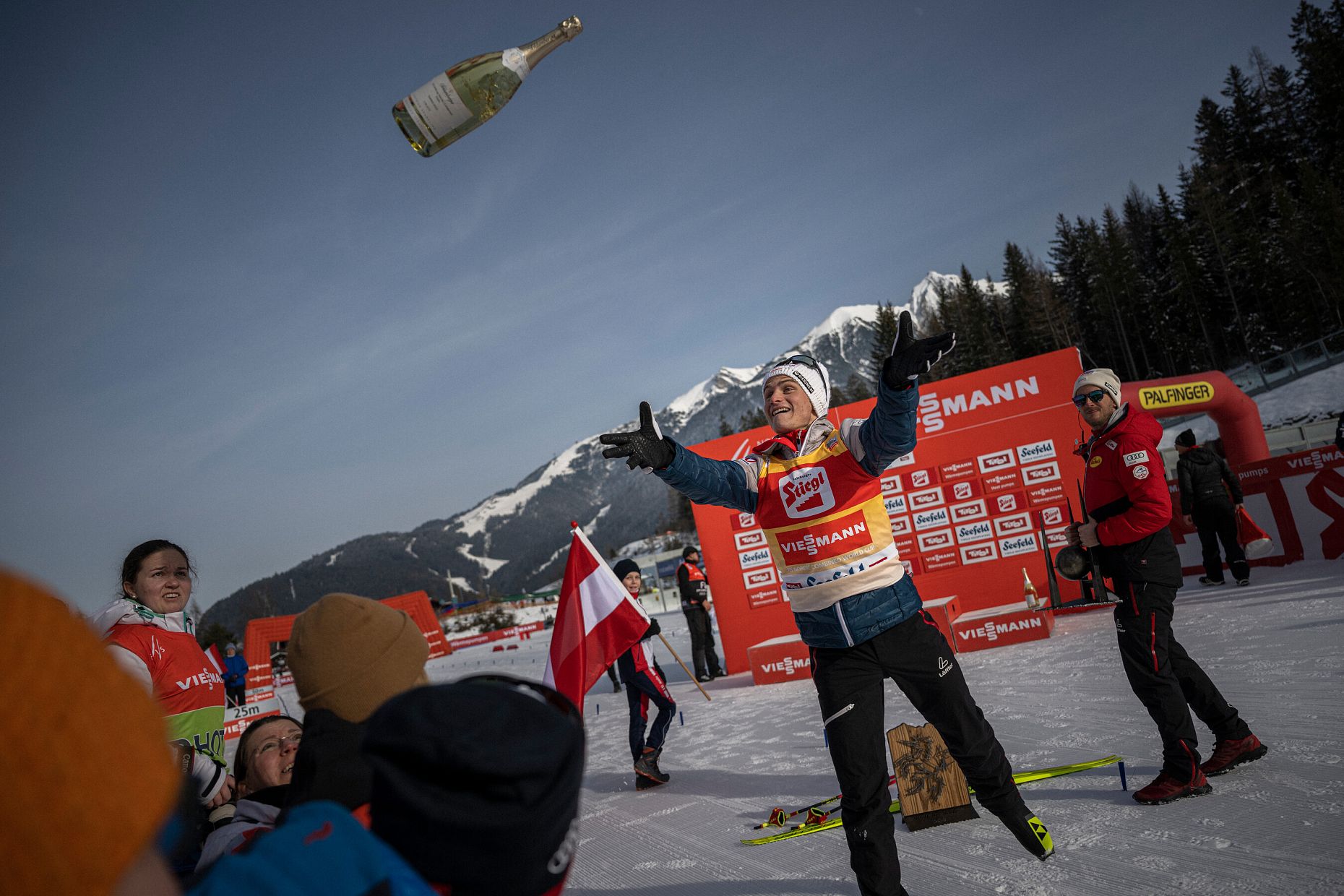
Looking forward to a large audience
Johannes Lamparter enjoys sharing his success with his fans - he is looking forward to a large audience in Seefeld again this year
Share
